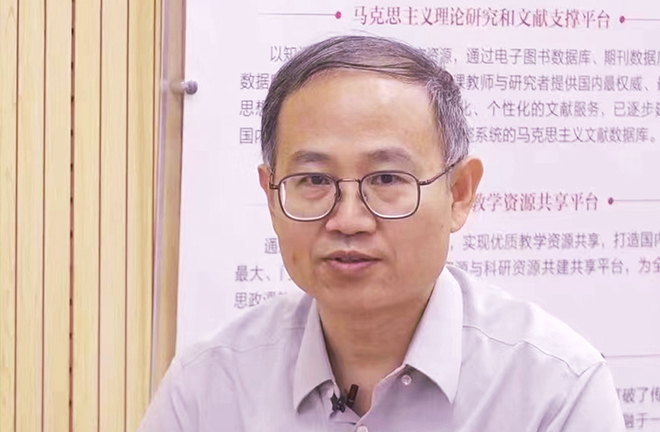Basic components of theoretical system of Chinese modernization

Following major discussions at the 20th CPC National Congress, in particular the systematic elaborations by General Secretary Xi Jinping, the theory of Chinese modernization has presented the outline of a scientific system.
In general, this theoretical system incorporates the following nine basic components.
Fundamental nature of Chinese modernization: the report to the 20th CPC National Congress offers a plain definition of Chinese modernization: “Chinese modernization is socialist modernization pursued under the leadership of the CPC.”
This definition directly reveals the social and political connotation of Chinese modernization and delineates its fundamental nature.
Fundamental guidance for Chinese modernization: Xi Jinping Thought on Socialism with Chinese Characteristics for a New Era is the fundamental guideline for Chinese modernization.
The theory of Chinese modernization formed at the 20th CPC National Congress is a significant component of Xi Jinping thought on socialism with Chinese characteristics, bearing more direct guiding significance on advancing Chinese modernization on the new journey in the new era.
Unique features of Chinese modernization: Chinese modernization contains elements that are common to the modernization processes of all countries, but it is more characterized by features that are unique to the Chinese context.
Chinese modernization is the modernization of a huge population, of common prosperity for all, of material and cultural-ethical advancement, of harmony between humanity and nature, and of peaceful development.
Essential requirements of Chinese modernization: Chinese modernization requires upholding the leadership of the CPC and socialism with Chinese characteristics, pursuing high-quality development, developing whole-process people’s democracy, enriching the people’s cultural lives, achieving common prosperity for all, promoting harmony between humanity and nature, building a community with a shared future for mankind, and creating a new form of human advancement.
Blueprint of Chinese modernization: to build China into a great modern socialist country in all respects, we have adopted a two-step strategic plan: basically realizing socialist modernization from 2020 through 2035 and building China into a great modern socialist country that is prosperous, strong, democratic, culturally advanced, harmonious, and beautiful from 2035 through the middle of this century.
Major principles of Chinese modernization: on the journey of building China into a modern socialist country in all respects, we must firmly adhere to the following major principles: upholding and strengthening the Party’s overall leadership, following the path of socialism with Chinese characteristics, applying a people-centered development philosophy, remaining committed to deepening reform and opening up, and carrying forward our fighting spirit.
Major relationships of Chinese modernization: major relationships in advancing Chinese modernization should be properly handled.
Advancing Chinese modernization is a systematic project, requiring coordination, systematic planning, and holistic promotion.
To this end, six major relationships should be properly handled: top-level design and practical exploration, strategy and tactics, upholding fundamental principles and breaking new ground, efficiency and fairness, vitality and order, and self-reliance and opening up.
Ideological implications of Chinese modernization: Chinese modernization is a unity of theory and practice, which contains not only unique creations in practice, but also unique ideological innovation.
Global significance of Chinese modernization: Relying on Chinese modernization, we have created the two wonders of rapid economic development and long-term social stability.
Furthermore, Chinese modernization has provided a new choice for developing countries to independently achieve modernization.
The extraordinary creations of Chinese modernization in theory and practice are major innovations of world modernization theories and practices.
The global and historical significance of Chinese modernization manifests in the fact that it has created a new form of human advancement.
Liu Jianjun is a professor from the School of Marxism Studies at Renmin University of China.
Edited by ZHAO YUAN

 PRINT
PRINT CLOSE
CLOSE